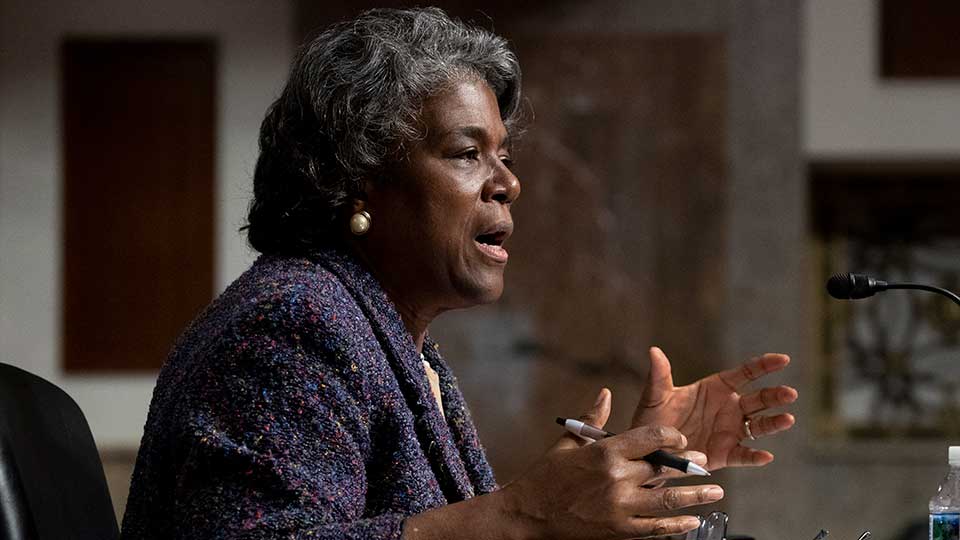This week’s confirmation hearing for Linda Thomas-Greenfield’s to become the next United States ambassador to the United Nations provided a glimpse of how Africa might be dragged into growing tensions between the U.S. and China.
Thomas-Greenfield faced hostile questioning about a speech she gave in 2019, in which she called for triangular cooperation between China and the U.S. to boost African development. Commentators breathlessly seized on the fact that the speech was delivered at Savannah State University’s Confucius Institute. Faced with accusations that she was “praising the genius of the Chinese Communist Party while denigrating American diplomacy at the Confucius Institute,” Thomas-Greenfield was forced to retreat, calling the speech “a huge mistake.” She then backed into a set of accepted U.S. talking points on China-Africa relations, many of which were both stale and dubious.
It is however instructive to read the transcript of Thomas-Greenfield’s original 2019 speech. It turns out not to be a rabid United Work Front screed, but a reiteration of some pretty standard development world suggestions on how to maximize U.S. engagement with Africa. Thomas-Greenfield’s suggestion that Africa-U.S-China “win-win-win” development is possible, now taken as an outrageous gaffe, is actually in line with official thinking in the United Kingdom and Germany.
In addition, 2019 Thomas-Greenfield was a lot more nuanced about the dynamics underlying African governments’ choice of Chinese loans than her 2021 doppelganger. And while there is a chorus of praise for the Biden administration’s return of highly skilled veteran diplomats like her to the fold, she ended up being dinged by this very nuance.
For example, the Washington Post columnist Josh Rogin was in high dudgeon, complaining that “Thomas-Greenfield also seemed to excuse Beijing’s debt-trap diplomacy in Africa,” even though American academics have shown many times that there is no Chinese debt-trap diplomacy, not in Africa, and not elsewhere. In the 2019 speech Thomas-Greenfield simply pointed out that many African governments opt for Chinese loans because they don’t have many comparable Western alternatives, which anyone working in African development knows to be true – this is why London and Berlin are pursuing trilateral cooperation in the first place.
The pressure on U.S. officials talking about China-Africa relations to dump nuance in favor of politically convenient fables is worrying, and it makes me more pessimistic about how much attention actual African needs will get in Biden’s Washington, where being anti-China is one of the few things everyone can agree on.
The problem in U.S.-Africa relations isn’t that China is too strong in Africa, it’s that Africans frequently have to deal with U.S. policy primarily designed to please domestic audiences rather than addressing long-term African needs. There are notable exceptions (PEPFAR is a great example) but they prove the rule: the best U.S. engagement with Africa takes African realities seriously. And like it or not, China is now part of that reality.









